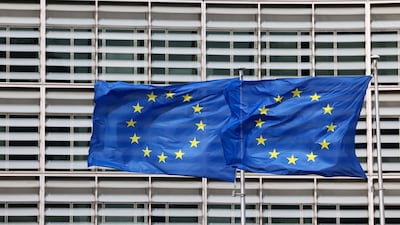The European Parliament has condemned Tunisia's decision to bar a delegation sent by its foreign affairs committee from entering the North African country.
“This conduct is unprecedented since the democratic revolution in 2011,” the committee said, as it demanded a “detailed explanation”.
The delegation, led by MEP Michael Gahler from Germany, was scheduled to arrive in Tunis on Thursday on a two-day visit to “get a better insight into the current political situation in the country”, the European Parliament said earlier on Wednesday.
A Tunisian Foreign Ministry letter that communicated the decision was shared on social media platform X, formerly Twitter, but did not provide further details.
The move comes after a heated debate during a plenary session in the European Parliament on Tuesday, during which politicians criticised the EU's controversial migration pact with Tunisia that was reached in June.
The EU promised Tunisia €1 billion ($1.12 billion) in support, of which about €100 million would be used to secure the borders of the North African country.
Thursday's visit was expected to assess developments since the foreign affairs committee's previous fact-finding mission to Tunisia in April 2022, when the European Parliament expressed concern that the country's democratic standards and human rights were deteriorating.
Tunisia held elections in December 2022, which were boycotted by opposition parties and shunned by voters with a turnout rate of about 10 per cent. These were followed by parliamentary run-offs in January 2023.
MEPs were also going to look into the recently signed EU-Tunisia agreement that covers trade, green energy and migration.
Some MEPs expressed concerns over “the worsening of migrants’ rights in the country”.
During their stay in Tunis, the delegation was meant to meet civil society organisations, trade unions and opposition leaders, as well as representatives of political foundations and EU member states.
The delegation had also requested to meet Tunisian foreign affairs committee.

